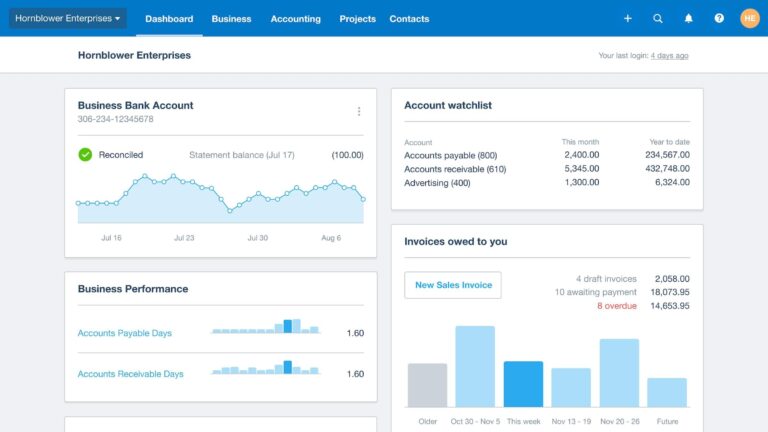Xero Shifts Strategic Focus by Closing San Francisco Office
Cloud accounting leader Xero has revealed plans to shut down its San Francisco branch, signaling a major realignment in its operational approach. This decision, announced recently, is part of a broader effort to streamline resources and concentrate on markets where the company sees the greatest growth potential. The closure highlights the ongoing challenges tech companies face in sustaining costly urban offices amid the rise of remote work and shifting business priorities.
The companyŌĆÖs restructuring aims to enhance efficiency by reallocating investments toward core regions, particularly Australasia and the UK, where user engagement remains strong. Xero is also prioritizing innovation and customer experience improvements as part of this transition. Key elements of the restructuring include:
- Centralizing U.S. operations with an emphasis on remote workforce models and strategic alliances.
- Boosting funding for research and development, especially in AI-powered accounting solutions.
- Expanding support systems tailored to small and medium-sized enterprises worldwide.
Impact on San Francisco Staff and the Local Tech Scene
The San Francisco office closure will directly affect numerous employees, many of whom face uncertainty regarding their roles. Xero is offering options such as relocation assistance or remote work arrangements to ease this transition. This move also reflects broader pressures on tech companies in the Bay Area, where soaring costs and competitive labor markets are prompting reevaluation of physical office spaces.
Beyond employee concerns, the decision may influence San FranciscoŌĆÖs technology ecosystem in several ways:
- Innovation Slowdown: Reduced face-to-face collaboration could hinder rapid product development.
- Economic Ripple Effects: Local vendors and small businesses that rely on office workers may see decreased revenue.
- Talent Redistribution: The shift toward remote or hybrid work models elsewhere might accelerate the migration of skilled professionals out of the city.
| Area | Expected Outcome |
|---|---|
| Employee Retention | Moderate risk due to relocation and remote work transitions |
| Startup Ecosystem | Heightened competition for local talent |
| Commercial Real Estate | Potential decrease in demand for office leases |
| Professional Networking | Less frequent in-person interactions |
XeroŌĆÖs Global Growth Strategy: Prioritizing High-Potential Markets
Closing the San Francisco office is a strategic maneuver as Xero recalibrates its international expansion efforts. The company is channeling resources into regions with promising growth trajectories, aligning with a broader industry trend of focusing on markets where competitive advantages and scalability are more attainable.
Xero is intensifying its focus on the Asia-Pacific and European markets, where demand for cloud-based accounting solutions is rapidly increasing. Analysts highlight that this regional emphasis allows Xero to customize its offerings to meet diverse regulatory frameworks and cultural nuances. The companyŌĆÖs key initiatives include:
- Developing localized software features that comply with regional accounting regulations.
- Forging strategic alliances with local financial institutions and service providers.
- Enhancing customer service capabilities to foster stronger client relationships.
| Region | Growth Outlook | Strategic Focus |
|---|---|---|
| Asia-Pacific | Very High | Localization, Partnerships |
| Europe | Moderate to High | Regulatory Compliance, Customer Support |
| North America | Under Review | Operational Streamlining |
Support Strategies for Displaced Employees and Adapting to Industry Evolution
Employees impacted by the office shutdown are encouraged to actively utilize available support resources. Enhancing skills through online learning platforms and certifications in emerging technologies can improve employability in a competitive market. Building and maintaining professional networks via industry conferences and platforms like LinkedIn is vital for uncovering new opportunities. Additionally, exploring internal transfers within Xero or seeking roles in comparable tech firms can provide career continuity during this period of change.
Both individuals and organizations navigating this shifting landscape benefit from strategic foresight and flexibility. The following table outlines practical steps for employees managing career transitions:
| Recommended Action | Advantage |
|---|---|
| Acquire skills in emerging tech fields | Improved job prospects in expanding sectors |
| Engage with professional networks | Access to hidden job markets and peer support |
| Utilize career transition services | Structured guidance through job searches |
| Consider freelance or contract work | Flexible income streams and work schedules |
Conclusion: XeroŌĆÖs Evolving Operational Landscape and Market Focus
The decision to close the San Francisco office represents a pivotal moment in XeroŌĆÖs U.S. strategy, mirroring wider industry trends where technology companies reassess their physical office requirements in light of changing work environments. By concentrating efforts on high-growth regions and investing in innovation, Xero is positioning itself to better serve its global customer base. Observers will be watching closely to see how these changes influence both the companyŌĆÖs trajectory and the broader tech ecosystem in San Francisco.




